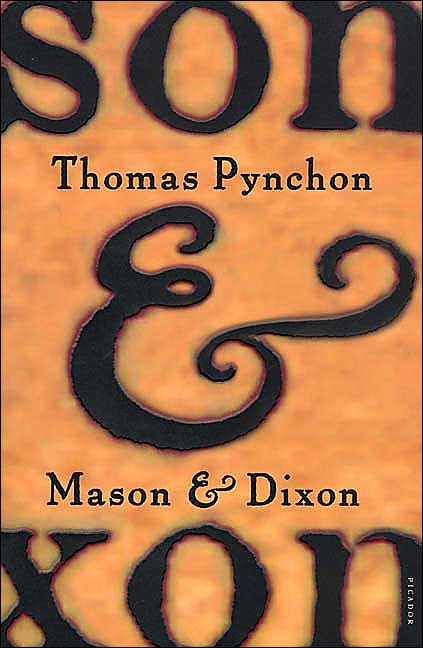This review originally appeared in the July 14, 1997 issue of In These Times. — J.R.
Pynchon’s Tangle

Mason & Dixon
By Thomas Pynchon
Henry Holt
773 pp. $27.50
It’s always been one of the paradoxes of Thomas Pynchon’s fiction that he combines the encyclopedic researches of a polymath with the rude instincts of a populist. V., The Crying of Lot 49, Gravity’s Rainbow, the stories in Slow Learner, Vineland, and now Mason & Dixon synthesize an awesome array of scientific and historical speculation while steadily sabotaging, with a compulsive anti-elitism, every effort to marshal this material into the stuff of high art. Fusing studied literary pastiche with collegiate humor and flip song lyrics, philosophical soul-searching with barroom brawls and locker-room asides, Pynchon’s intricate and unwieldy narratives tend to define and confound boundaries in the same gesture. So it stands to reason that this epic about American origins, focused on a couple of low-level line drawers (the 18th century executors of the Mason-Dixon Line), winds up favoring sprawl over progression, digression over linear advance.
It’s surely too soon to post final verdicts about a novel that reportedly was almost a quarter of a century in the making. Read more
Written for the 11th issue of the bilingual, online La Furia Umana (January-March 2012) to introduce a Joe Dante dossier. — J.R.

One of the problems inherent in using the term “cult” within a contemporary context relating to film, either as a noun or as an adjective, is that it refers to various social structures that no longer exist, at least not in the ways that they once did. When indiscriminate moviegoing (as opposed to going to see particular films) was a routine everyday activity, it was theoretically possible for cults to form around exceptional items — “sleepers,” as they were then called by film exhibitors — that were spontaneously adopted and anointed by audiences rather than generated by advertising. But once advertising started to anticipate and supersede such a selection process, the whole concept of the cult film became dubious at the same time it became more prominent, a marketing term rather than a self-generating social process.

Joe Dante deserves a special place in what I would call the post-cult cinema because he is one of the few commercial American directors I know who has refused to hire a personal publicist, and for tactical reasons — someone, in short, who chooses to be recognized at best only by initiates (that is, by fellow cultists or would-be cultists, his comrades-in-arms) rather than by the public at large. Read more

http://www.slantmagazine.com/house/2010/10/new-york-film-festival-2010-certified-copy/
 Read more
Read more





